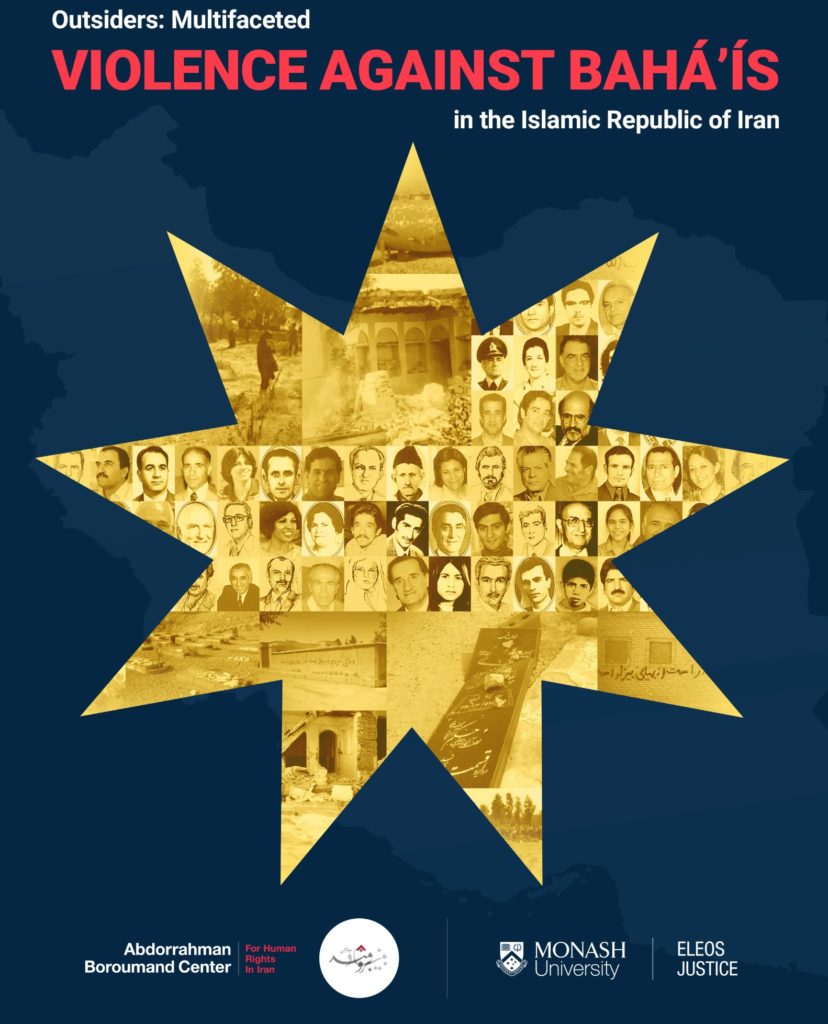Source: www.iranrights.org

This report, Outsiders: Multifaceted Violence Against Baháʼís in the Islamic Republic of Iran, jointly produced by Abdorahhman Boroumand Center for Human Rights in Iran and Eleos Justice (Faculty of Law, Monash University), examines the persecution of Bahá’ís through two frameworks: Johan Galtung’s theory of violence — direct, structural, and cultural — and international criminal law. Drawing on diverse sources, including over 50 interviews with Baháʼís, the report provides unprecedented insight into the mechanisms of persecution and calls for international awareness and accountability.
The Bahá’í faith, established in 1844, has faced continuous and intense persecution in Iran, marked by violence, discrimination, and a systematic denial of rights. Initially, Bahá’ís experienced mob violence and various forms of state-sanctioned oppression, which worsened after the 1979 Islamic Revolution. The new regime viewed the Bahá’í community as a theological and ideological threat, reinforcing exclusionary policies under the doctrine of Velayat-e Faqih, which left no room for religious diversity.
State violence against Bahá’ís has ranged from executions, enforced disappearances, torture, and physical abuse, to the destruction of property, including homes, businesses, and cemeteries. Hundreds of Bahá’í properties have been confiscated, leaving families without recourse and with lingering trauma.
Apart from physical violence, Bahá’ís in Iran suffer structural and cultural discrimination. The constitution excludes Bahá’ís from recognized religious minorities, denying them basic rights to education, employment, and property. A 1991 memorandum further formalized policies aimed at limiting Bahá’í socioeconomic progress. Recently, Bahá’ís have been denied marriage registration, complicating legal matters around family and inheritance.
Culturally, the State perpetuates anti-Bahá’í sentiment through propaganda and misinformation, portraying Bahá’ís as foreign agents or morally corrupt. This narrative permeates educational materials, fostering discrimination among students and teachers. However, there is growing resistance among Iranians, with some expressing support for the Bahá’í community.
Under international law, these systematic actions against Bahá’ís constitute crimes against humanity, including murder and persecution, though they fall short of the legal definition of genocide. Despite Iran’s non-participation in the Rome Statute, the principle of universal jurisdiction allows for potential prosecution by other nations, marking an ongoing international concern for the Bahá’ís’ plight in Iran.
Read the full report in PDF format.
Leave a Reply